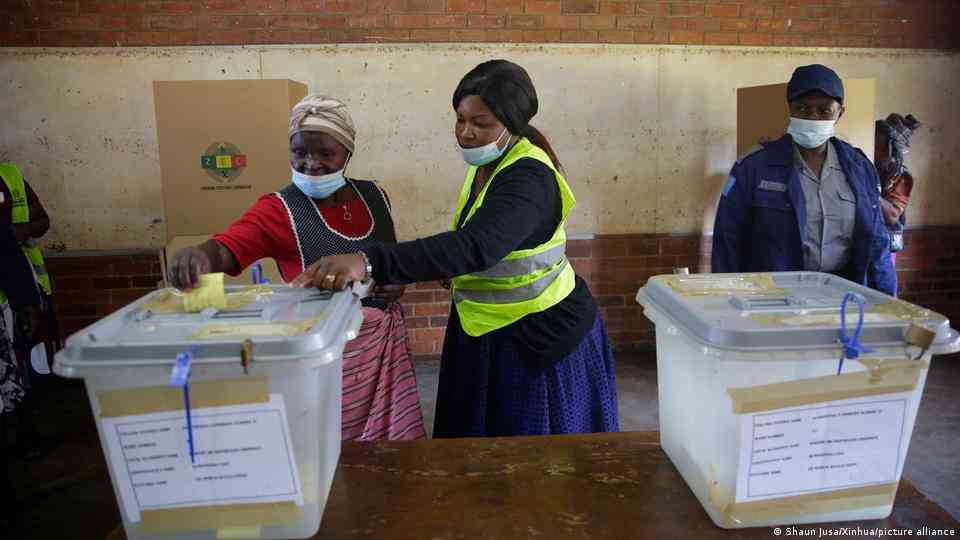
BY PHYLLIS MBANJE
ZIMBABWE’S fragile health sector has been left reeling from a massive exodus of health professionals after over 2 200 of this critical work force left in 2021.
The figure includes more than 150 nurses and doctors who resigned from Bulawayo hospitals to take up jobs in the National Health Service (NHS) early 2021.
The NHS is one of UK’s largest publicly funded healthcare system.
Over the years, the country has recorded such a rapid brain drain of health workers who are now spread over the world in countries like the UK, Australia, US, South Africa and Namibia.
Currently, many are jostling to even take up crash courses to become nurse aides and their target is not to work in the local health facilities but have set their sights far beyond the borders.
A glimpse into the past shows that the number of health professionals has been increasing tremendously.
According to figures from the Health Services Board (HSB) in 2020 the number was almost half (993) the figure for 2021 while in 2019 around 700 left.
- Chamisa under fire over US$120K donation
- Mavhunga puts DeMbare into Chibuku quarterfinals
- Pension funds bet on Cabora Bassa oilfields
- Councils defy govt fire tender directive
Keep Reading
A database created by Michael A Clemens and Gunilla Pettersson on the migration of doctors and nurses from Africa, revealed that prior to 1999 around 50 Zimbabwean health professionals applied to be registered in the United Kingdom.
This figure shot up to 221 between 1999 and 2000 and almost doubled to 391 by 2003/04.
The exodus has been made worse by the NHS England’s drive to rely on international recruitment to fill 39 000 existing vacancies.
Why the brain drain?
While Zimbabwe is not the only country with health professionals leaving for greener pastures, it sure is among those with higher numbers.
The main reasons for the brain drain are vast, but are largely to do with poor remuneration and working environment.
Salary negotiations have yielded little response with doctors earning less than US$300 per month.
This has resulted in perennial job actions and deadlocks.
President of the Zimbabwe Senior Hospital Doctors Association Shingai Nyaguse said many were leaving after running out of options to make a decent living.
“When negotiating spaces are closed then it leaves workers with no option but to make their own decision on what is the best way forward for them and their families,” she said referring to the Health Service Amendment Bill which seeks to bar health professionals from engaging in industrial action.
The contentious Health Service Amendment Bill which is currently being considered by the Parliamentary Legal Committee, has drawn public ire and last month legal think tank Veritas said health workers would not be intimidated into accepting poor conditions of service and refraining from strikes.
“Most health workers are very patriotic and would love to serve the communities they live in but they also have responsibilities to their families and other dependants,” Nyaguse said.
While leading international health body World Health Organisation (WHO) recommends a minimum of 23 doctors per 10 000 people, past surveys reveal that in Zimbabwe there is an average of just 1,6 doctors per 10 000 people.
This clearly shows how the doctors are overwhelmed and work more hours and yet receive little rewards.
Attractive offers have, therefore, enticed thousands of local health professionals to leave their current employ.
In the UK the Royal College of Nursing (RCN) has estimated that the average annual salary of an NHS nurse is £33 384, while the average salary for a registered nurse (RN) is £25 708.
In South Africa, an entry level nurse with less than three years of experience can expect to earn an average compensation of R15 000 gross per month. A mid-career nurse with between four to nine years of experience earns an average salary of R26 000, while an experienced nurse with 10-20 years of experience makes on average R37 000.
Overall, salaries range from R19 300 (lowest average) to R57 900 (highest.)
The average registered nurse salary in Australia is $79 399 per year or $40,72 per hour. Entry-level positions start at $76 317 per year, while most experienced workers make up to $97 500 per year.
Meanwhile a person working as a registered nurse in Namibia earns around $14 500 per month which is an equivalent of over US$900. Salaries range from $7 110 (lowest) to $22 600 (highest).
In the US overall, the average registered nurse salary is US$80 010 per year.
Zimbabwean trained health professionals have been hailed abroad for their skills and this has created a big market for such skills.
A UK-based Zimbabwean Abigail Katsande, who is now head of nursing at Linc Cymru (Wales), a housing association and care provider said while UK had various categories for nursing, such as general nurses’ mental health nurses and many others, there was not so much differentiation in the Zimbabwean setting. The nurses are trained in all disciplines.
In an interview with RCN Wales, the qualified mental health nurse, who has been in the UK for nearly 30 years after training at the Scottish Borders School of Nursing (Melrose), said Zimbabwean nurses were very competent.
“From what I have seen, the nurses can competently work with very little resources; they improvise. Zimbabweans are good at being creative in difficult situations,” Katsande said.
She explained that because Zimbabwe trained nurses in all disciplines of nursing — general, mental health, peadiatric and midwifery, it meant that their skills come in handy in situations where there is a shortage of doctors.
“It’s very useful that the nurses have advanced, all-encompassing skillsets,” she said.
How government has reacted to the brain drain
Typical of the Zimbabwean government, desperate measures have been put in place to try and scuttle the plans of the medical professionals to leave.
The applications for prospectives are now subjected to rigorous processes and getting a signature requires a senior doctor with five years experience and a senior member of the profession, provincial medical director or medical superintendent they practised with in the previous six months.
Under the new conditions, a hospital clinical director, provincial medical director or medical superintendent must first sign, followed by the director of curative services in the Health and Child Care ministry before the application finally goes to the ministry’s permanent secretary for “approval”.
Vice-President and Health minister Constantino Chiwenga has also said that they are planning to approach the United Nations (UN) to discuss possible compensation.
The VP said Zimbabwe invested a lot of money training nurses and doctors and, therefore, needed to be recompensed should they leave, he said.
But government needs to improve conditions of service as a staring point, health experts said.
“There is a massive brain drain in the health sector all due to poor working conditions that include renumeration and low incentives. The extra qualified staff like oncologists and specialists are actually leaving Zimbabwe to look for greener pastures because of the economic situation in the country. Government should, therefore, intervene and improve the conditions of its workers. Workers should be incentivised with good management for the betterment of Zimbabwe” Medical and Dental Private Practitioners of Zimbabwe Association president Johannes Marisa said.
l Follow Phyllis on Twitter @pmbanje
This article first appeared in the Weekly Digest, an AMH Digital publication











